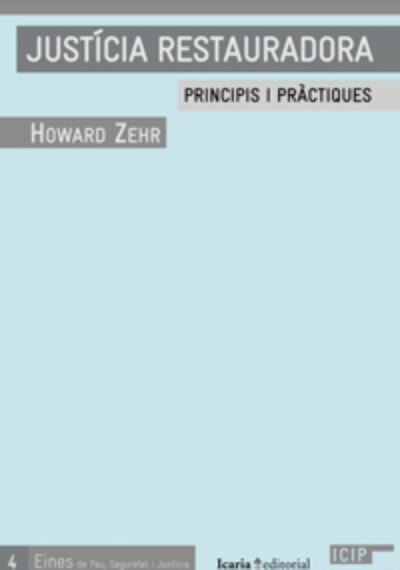
Translation to Catalan of: Howard Zehr. Restorative Justice: principles and practice. Barcelona: Institut Català Internacional per la Pau; Icària, 2011.
How should we as a society act when confronted by bad practices? What should we do when a crime is committed or justice is breached? What does justice mean?
Neither victims, perpetrators, nor members of society believe that the justice system adequately works towards meeting the goals it was designed to uphold. Professionals working in the court system also express certain levels of discontent and frustration with the system. Many feel that the legal process aggravates social division instead of promoting greater social cohesion.
Restorative justice is a process that involves those who express interest in a specific crime. These people work together to identify and constructively face the damage, needs and obligations involved in the concrete case, and work to find a cure for the harm done and fix the situation as best they can.
In this book, Zehr outlines the principles and practices that make restorative justice both possible and useful.
About the author
Howard Zehr directed the first Victim-Offender reconciliation program in the United States and has been one of the most influential authors to contribute to the development of the restorative justice concept. His book Changing Lenses: a new focus for crime and justice is considered to be a classic in the field. He is also the co director of the Center for Justice and Peace building at Eastern Mennonite University.
